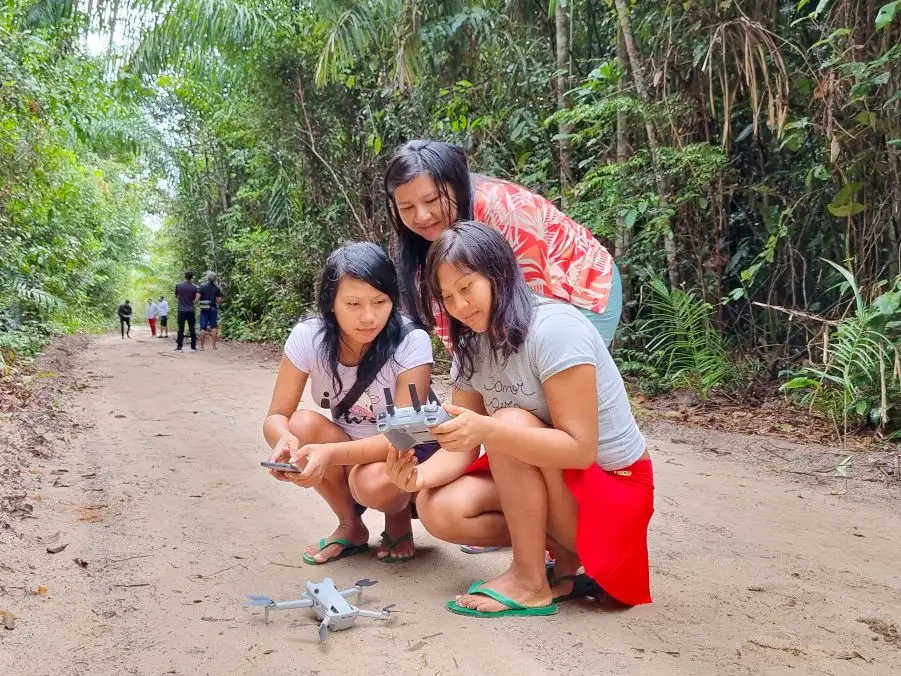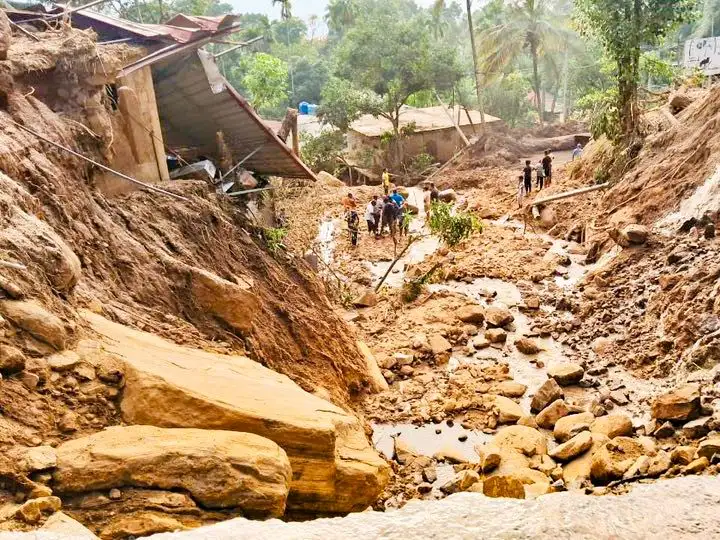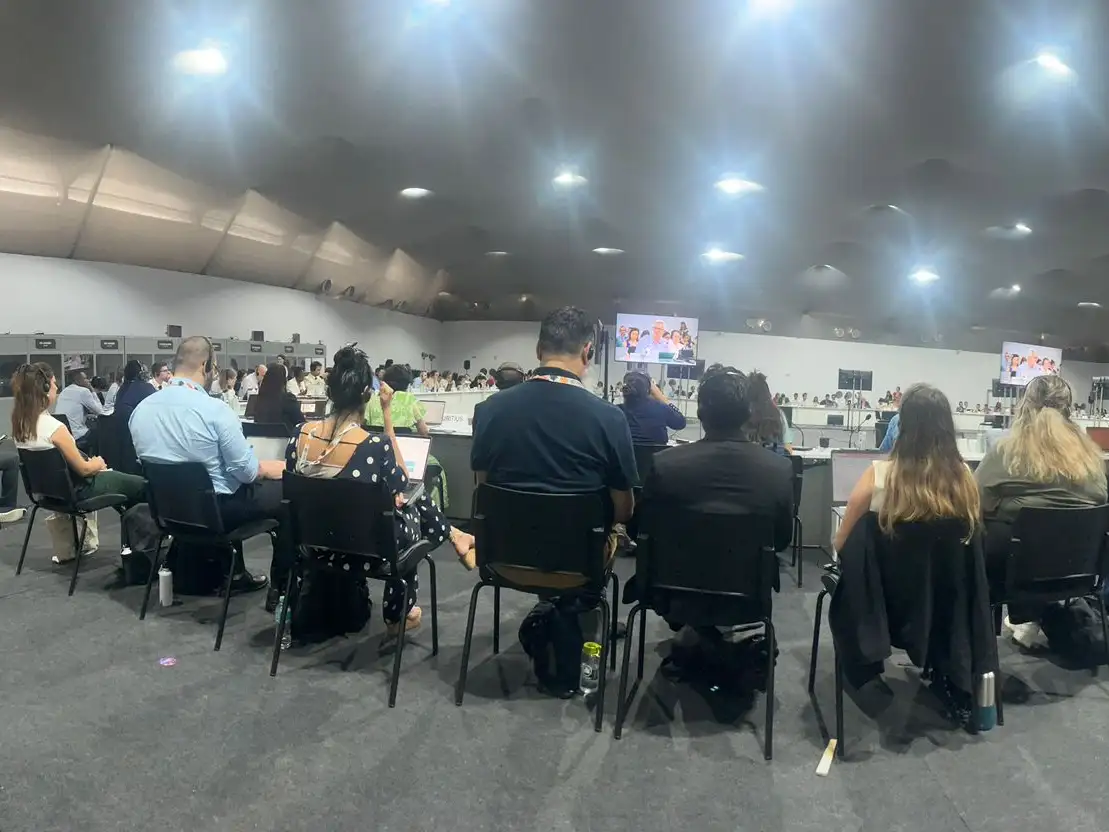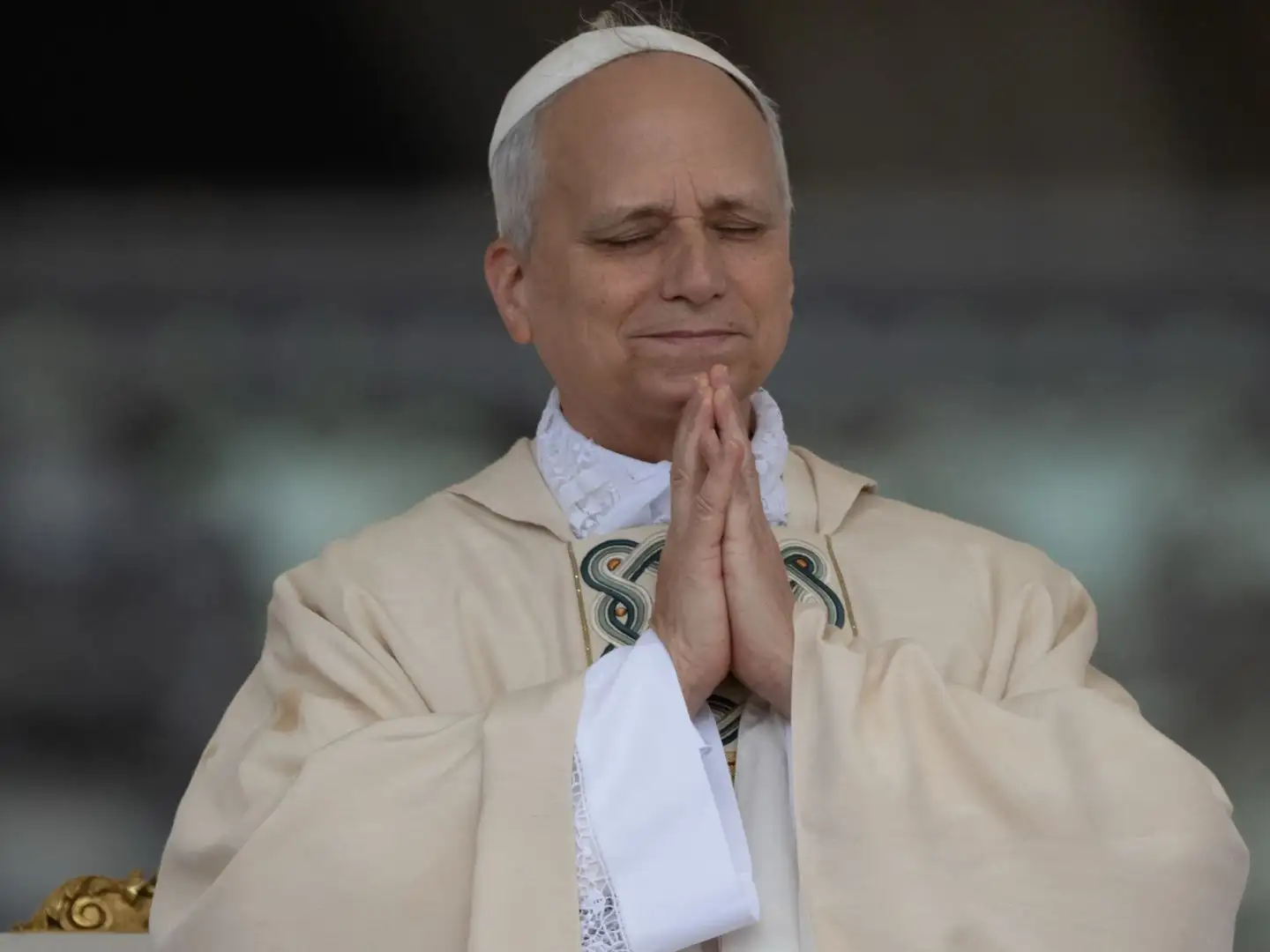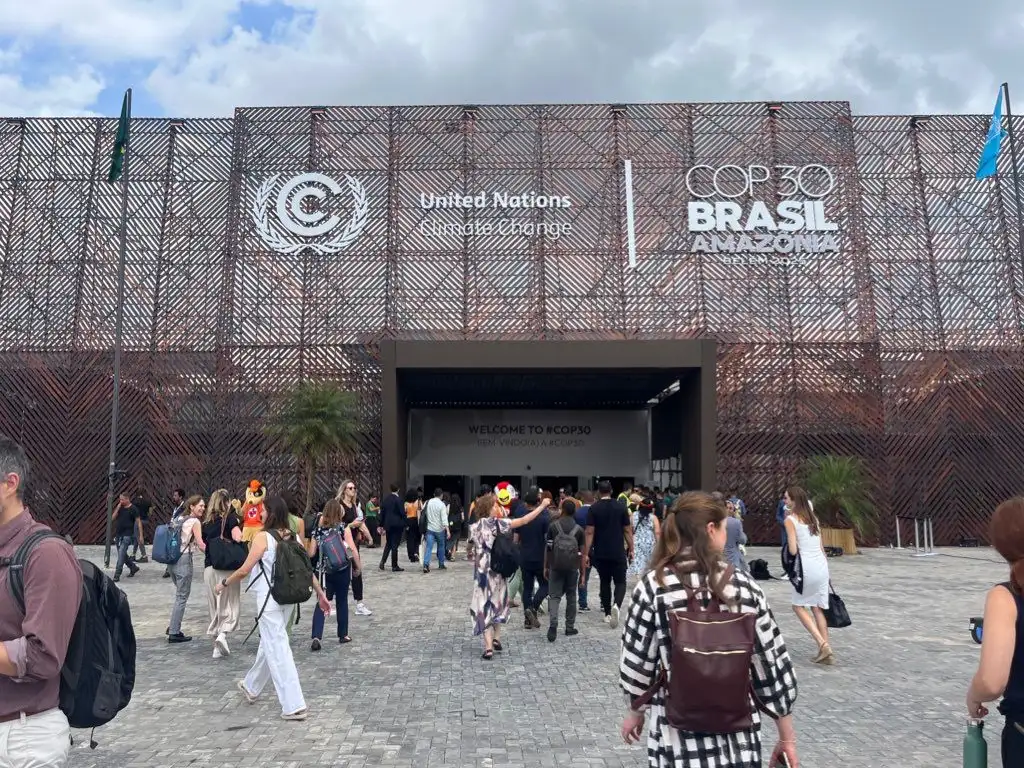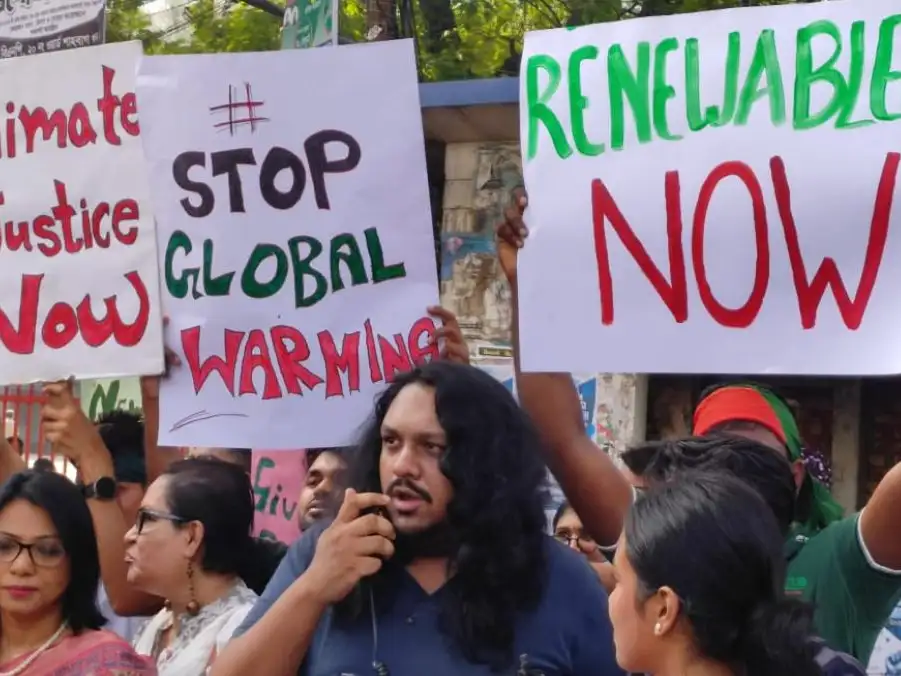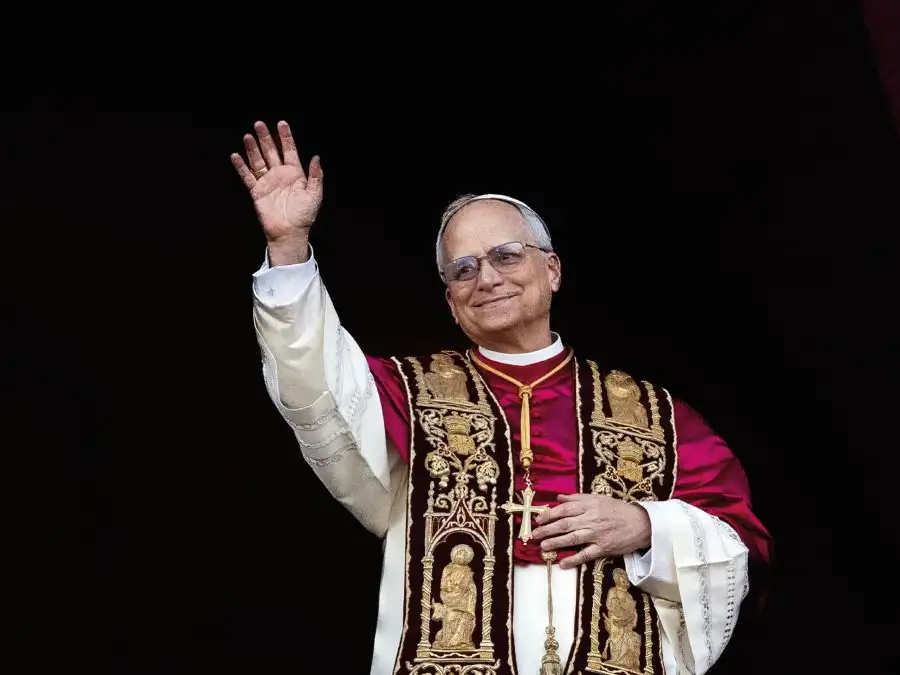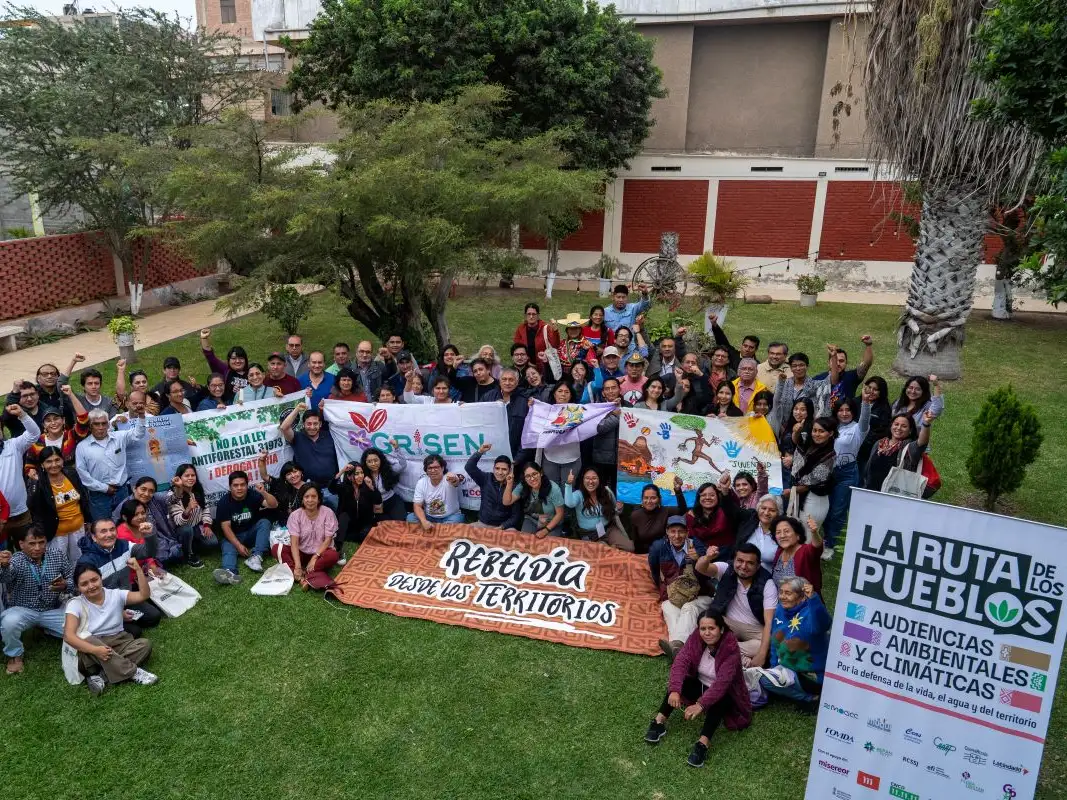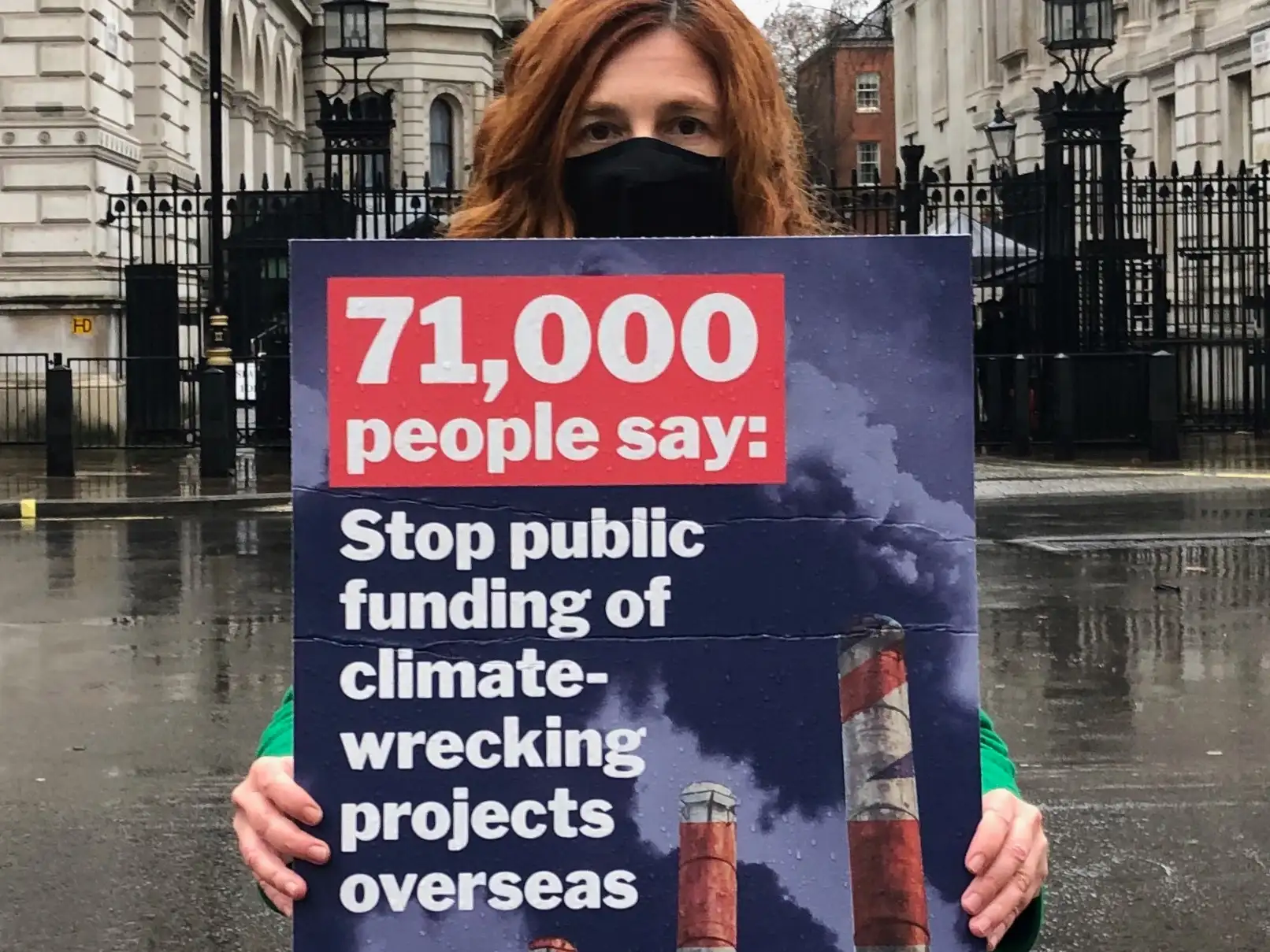

CAFOD Campaigns Engagement Manager, Andrea Speranza, joins other campaigners in calling for the UK government to stop investing in fossil fuels overseas.
CAFOD campaigners are among 71,000 people calling on the UK government to immediately stop investing in fossil fuel projects overseas.
Campaigners from CAFOD, Friends of the Earth, Tearfund, Global Justice Now, Oil Change International and The Prophetic Activists delivered petitions to Downing Street urging the government to stop financial support for fossil fuels overseas and instead invest in clean energy, green jobs and support for people on the frontlines of the climate crisis.
Despite being hosts of the COP26 UN climate talks, the UK government continues to bank roll oil and gas projects across the world. Since 2015, £3.9 billion has been spent on these projects, and the figure continues to rise.
In November 2020, the government admitted it was continuing to explore new investments in fossil fuel projects in seven countries, including Thailand, Algeria, Iraq and Brazil.
The campaigners are calling for an end to this spending which undermines the historic Paris Agreement, where countries agreed to limit temperature rises to 1.5C.
Fairer, greener recovery
As we recover from COVID-19, there are opportunities to create a fairer world and invest in a green transition globally, helping to bring renewable energy to communities living without access to electricity, create green jobs globally as well as cleaner air and a healthier planet.
Campaigners called on the UK government to show decisive leadership before it makes a mockery of hosting the UN climate talks in Glasgow next year.
By funding fossil fuels through UK aid and export finance, not only is the UK undermining its credibility, it is putting the lives of vulnerable communities at risk.
Graham Gordon, Head of Policy, CAFOD said:
“If the UK is serious about showing climate leadership, it must stop funding all fossil fuels immediately.
“As the Government prepares to host the COP and assume presidency of the G7 in 2021, it has a unique opportunity to bring countries together to tackle climate change.
“By funding fossil fuels through UK aid and export finance, not only is the UK undermining its credibility, it is putting the lives of vulnerable communities at risk.”


